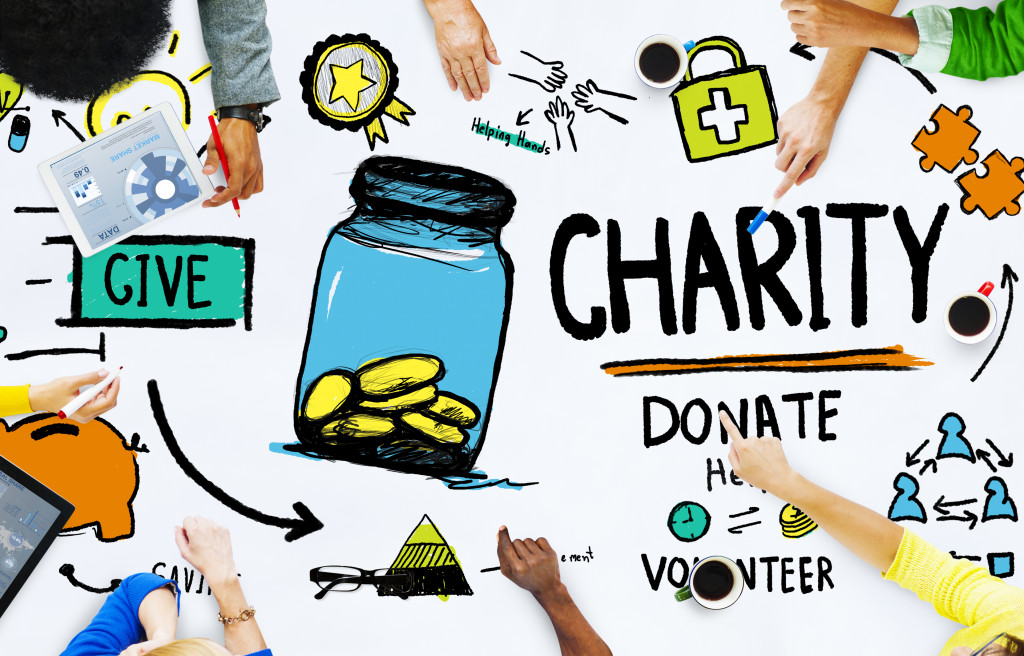Giving is more than just an act of kindness—it’s a powerful way to make a difference in the lives of others while enriching your own. Whether through time, resources, money, or emotional support, generosity can foster deeper connections, promote a sense of purpose, and lead to greater fulfillment. This guide will explore the various aspects of giving, how to approach it thoughtfully, and how to maximize its impact on both the giver and the receiver.
Why Giving Matters
Giving has a profound effect on individuals, communities, and society at large. It cultivates empathy, fosters cooperation, and strengthens social bonds. In addition to the emotional and spiritual rewards, science has shown that giving can positively impact your mental and physical well-being.
1. Creating Positive Change
Whether it’s giving to a charity, helping a neighbour, or supporting a cause, giving enables you to be part of something larger than yourself. It’s a way to contribute to the world’s well-being and help address issues like poverty, education, and health.
2. Personal Fulfillment
Research suggests that people who give experience more happiness and satisfaction. The act of giving, especially when it aligns with your values, can create a deep sense of purpose and joy.
3. Strengthening Relationships
Giving fosters connection. Whether it’s time, a listening ear, or financial support, sharing with others helps build trust and strengthens relationships. It’s a mutual exchange that benefits both the giver and the receiver.

Types of Giving
Giving takes many forms, each with its own significance. You don’t have to give large amounts of money to make a difference—there are countless ways to give meaningfully, each tailored to your resources and strengths.
1. Monetary Donations
One of the most common forms of giving is through financial contributions to causes, charities, and organizations that align with your values. Even small donations can have a big impact when directed towards meaningful initiatives.
Examples:
- Giving to nonprofits or charities that support issues such as poverty relief, education, and environmental sustainability.
- Setting up recurring donations to a favourite cause or church.
- Contributing to fundraisers or disaster relief efforts.
2. Time and Volunteering
Volunteering your time is an invaluable form of giving. Whether it’s tutoring, mentoring, or participating in community service projects, giving your time can be even more impactful than financial contributions.
Examples:
- Volunteering at local shelters, food banks, or community centers.
- Tutoring children or providing mentorship to young adults.
- Participating in neighborhood clean-up efforts or environmental projects.
3. Acts of Kindness
Small, everyday acts of kindness can brighten someone’s day and make the world a little better. These acts don’t require much time or money but can leave a lasting positive impact on others.
Examples:
- Offering help to a neighbor or colleague in need.
- Sending a thoughtful message or card to someone who is going through a difficult time.
- Paying for a stranger’s coffee or meal.

4. Sharing Knowledge and Skills
One of the most powerful ways to give is by sharing your knowledge and skills with others. Whether through teaching, mentoring, or offering professional expertise, giving your wisdom can create lasting change.
Examples:
- Offering free workshops or classes in areas where you have expertise.
- Mentoring young professionals or students in your field.
- Helping a small business or nonprofit by providing pro bono services.
5. Emotional Support
Offering emotional support through active listening, empathy, and encouragement is a meaningful way to give. Being present for someone in need can help them feel seen, understood, and valued.
Examples:
- Listening without judgment when someone needs to talk.
- Offering comfort and encouragement to friends or family members during tough times.
- Being available to check in regularly with someone who is going through a difficult situation.
How to Give Thoughtfully
Giving is most impactful when it’s done with intention and consideration. Whether giving your time, money, or support, thoughtful giving ensures that your actions are meaningful, effective, and aligned with your values.
1. Align Giving with Your Values
Before deciding where to give, reflect on your values and the causes that matter most to you. Whether it’s helping children, supporting environmental initiatives, or advocating for social justice, giving to causes that resonate with you creates a deeper connection to the act of giving.
2. Research Before Donating
If you’re giving financially, ensure your contributions go to reputable organizations. Research charities, nonprofits, or causes to verify their legitimacy and how donations are used. Look for transparency and impact reports that show how funds are distributed.
3. Set a Giving Plan
If you want to make giving a regular part of your life, set a plan. Determine how much time or money you can give on a consistent basis, and incorporate it into your budget or schedule. Whether you plan to donate a percentage of your income or volunteer monthly, having a plan helps you stay committed.
4. Give Without Expectation
True generosity comes from giving without expecting anything in return. Give freely, whether through time, resources, or emotional support, trusting that your kindness will make a difference, even if you don’t see immediate results.
5. Involve Your Community
Giving can be even more impactful when you engage others. Whether by organizing a charity event, encouraging friends to volunteer, or creating awareness about a cause, involving your community can amplify your efforts.

The Benefits of Giving
1. Improved Mental Health
Giving has been shown to reduce stress, anxiety, and depression. Acts of generosity release endorphins, which promote a sense of well-being and happiness.
2. Increased Sense of Purpose
Giving aligns your actions with your values, providing a sense of purpose and meaning in your life. It shifts the focus from self-centered concerns to the well-being of others, fostering a sense of connection and fulfillment.
3. Stronger Social Bonds
Sharing with others helps build stronger relationships. Acts of kindness and support create trust, gratitude, and a deeper sense of community.
4. Enhanced Physical Health
Surprisingly, giving can even benefit your physical health. Studies have shown that people who give regularly experience lower blood pressure, reduced stress levels, and increased longevity.
In Conclusion
Giving is a powerful, transformative act that enriches both the giver and the receiver. Whether through monetary donations, volunteering, offering emotional support, or sharing your skills, there are countless ways to contribute meaningfully. When done thoughtfully and generously, giving fosters personal fulfillment, builds stronger communities, and creates lasting positive change. By making giving a regular practice, you not only impact the world around you but also experience the joy and growth that come with selfless acts of kindness.









